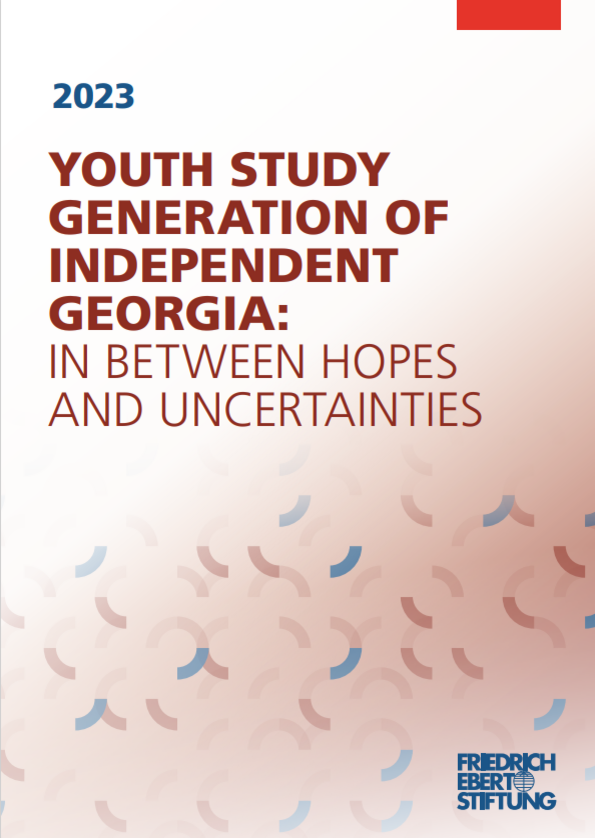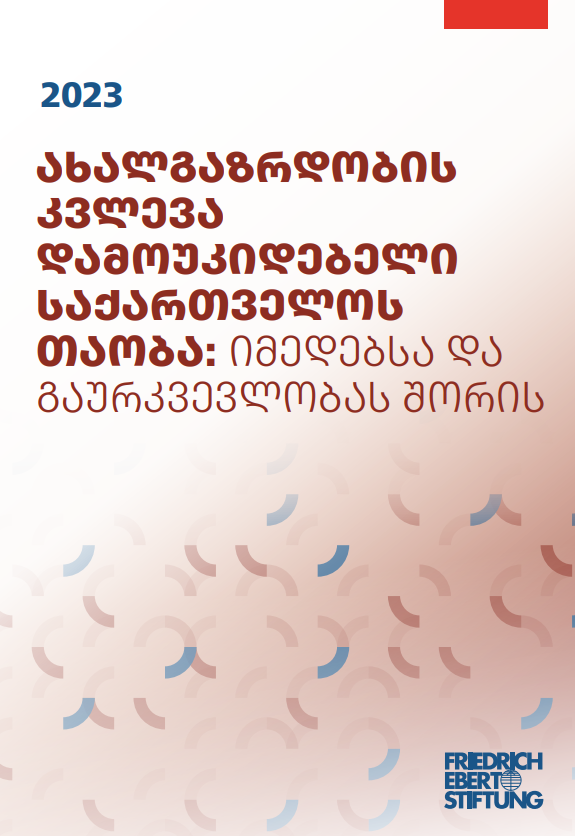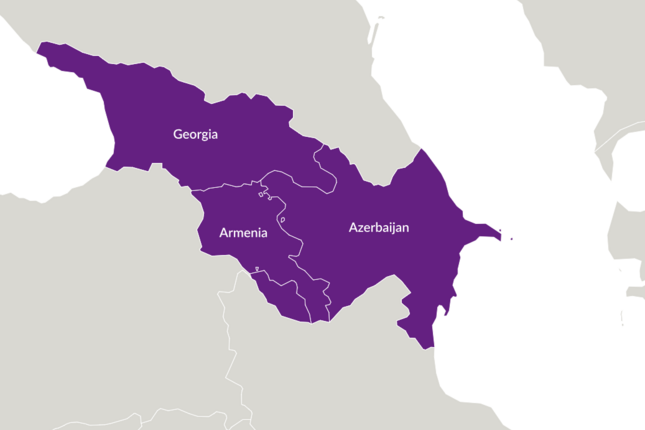
Georgian Youth View EU as Key Partner, Show Mixed Attitudes on Social Issues
Data from the Friedrich Ebert Foundation's Georgia Youth Study 2023 reveals how young Georgians aged view international cooperation and social issues. The survey of 1,206 youth shows strong support for EU partnerships, perception of Russia as a threat, and significant divides on social issues. These findings highlight both Georgia's westward orientation and the ongoing tensions within its society as a new generation navigates between traditional values and modern European perspectives.
Young Georgians Overwhelmingly Support EU Cooperation While Viewing Russia as a Threat
When asked about which international partners would contribute most to Georgia's economic growth, national security, and human rights protection, young Georgians showed a clear preference for cooperation with the European Union. Simultaneously, they identified Russia as the primary threat to Georgia's national values, security, statehood, and economic system.
The data paints a stark contrast in how young Georgians view international relations. Nearly 60% of respondents believe EU countries contribute to Georgia's economic growth, compared to just 4.72% for Russia. Similarly, over 63% see the EU as supporting human rights in Georgia, while only 1.8% say the same about Russia.
The United States also enjoys favorable perceptions, with 42% of young Georgians seeing it as contributing to economic growth and nearly 40% viewing it as supporting human rights protection. In contrast, neighboring countries like Turkey (11.97%), Azerbaijan (7.34%), and Armenia (3.42%) are viewed as having more limited impacts on Georgia's economic development.
Perhaps most striking is the perception of threats. Over 83% of respondents identified Russia as threatening Georgia's statehood, while 78% saw Russia as threatening national security. This reflects the tense relationship between the two countries, particularly following the 2008 Russo-Georgian War and Russia's ongoing support for the breakaway regions of Abkhazia and South Ossetia.
Significant Divides Exist on Social Attitudes Toward Homosexuality
While Georgian youth show unity in their international outlook, views on homosexuality reveal significant social divides across gender and urban/rural lines. The survey data indicates generally conservative attitudes, although with notable variations between demographic groups.
When asked whether condemning homosexual behavior is "our responsibility/obligation towards our children," 41.79% of young Georgians responded "Always" while 38.98% said "Never." However, these figures vary significantly by gender and location. Female respondents (44.61%) and urban youth (44.86%) were more likely to reject this view compared to males (33.68%) and rural respondents (29.55%).
The more concerning attitudes appear in questions about aggression toward homosexuals. While an overwhelming majority of 82.07% respondents said physical aggression toward homosexuals is "Never" justified, this still means nearly 18% believed it could be justified at least in some cases. The gap between genders is again notable – 87.48% of females rejected physical aggression compared to 76.75% of males.
Attitudes toward public expression of LGBTQ+ identity reveal particularly strong conservatism. When asked if homosexual people should be able to hold parades on the streets, 80.96% of respondents answered "Never," with males (84.96%) again more opposed than females (76.80%).
These findings suggest that while a significant portion of Georgian youth, particularly women and urban residents, hold more progressive views on homosexuality, a large conservative segment remains, especially among males and the rural population. This mirrors broader tensions in Georgian society regarding LGBTQ+ rights, which have been flashpoints for social conflict in recent years.
Most Georgian Youth Identify with Europe Despite Historical Complexities
When asked about Georgia's European identity, a majority of young Georgians see their country as European, though views are not unanimous and reflect complex historical attitudes.
Overall, about 63% of respondents agreed (either "Rather agree" or "Strongly agree") that Georgia is a European country, with no difference between genders. The urban-rural divide on this question was similarly minimal, with both groups showing nearly identical levels of agreement – 63.54% for urban and 63.53% for rural youth.
These findings indicate that while Georgian youth predominantly identify with Europe, a significant minority (approximately 37%) question or reject European identity. This is a reflection of Georgia's geopolitical position at the crossroads of Europe and Asia, and its historical relationship with both Russia and Western Europe.
Implications for Georgia's Future
The Friedrich Ebert Foundation's Youth Study provides important insights into the perspectives of Georgia's next generation of leaders and citizens. The strong pro-EU sentiment among Georgian youth aligns with the country's official aspiration for European integration, including its candidacy for EU membership. However, social attitudes reveal ongoing tensions between traditional values and the liberal social norms often associated with European integration.
For policymakers and civil society, these findings suggest both opportunities and challenges. The broad support for European partnerships provides a foundation for continued integration efforts, while the significant divides on social issues highlight the need for inclusive dialogue that respects Georgia's unique cultural context while promoting human rights and tolerance. As Georgia continues to navigate its path between East and West, the views of its youth will play a crucial role in determining the country's future direction.
About the Data
This analysis draws from the Friedrich Ebert Foundation's "Generation of Independent Georgia: In Between Hopes and Uncertainties" (Shubladze et al. 2023), examining views among Georgian youth aged 14-29 based on a survey of 1,206 respondents.


